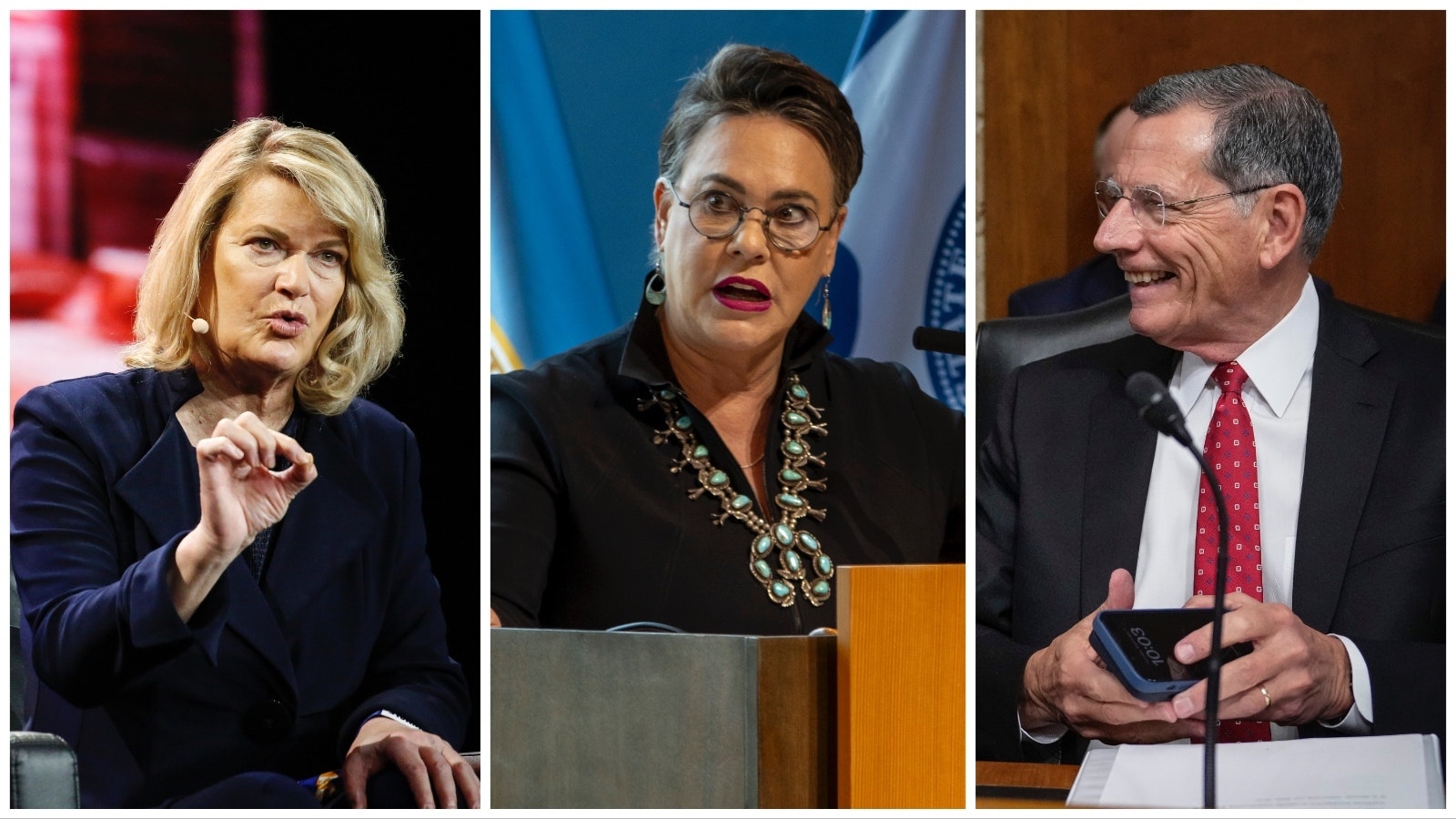It’s not often that Wyoming’s all-Republican congressional delegation disagrees with each other, but that’s what happened over the weekend on a stopgap plan to keep the federal government open through mid-November.
U.S. Sens. John Barrasso and Cynthia Lummis voted for the measure in the Senate while Rep. Harriet Hageman voted against it in the House.
Hageman said in a statement that she would have supported a different, shorter-term spending measure that would have dedicated money to securing the southern border and still reduced government spending overall.
Even though the resolution passed and was signed into law by President Joe Biden only funds the government for 45 days at current spending levels, Hageman said it’s still more than she could support.
“We are $33 trillion in debt, and we have over 11,000 illegals crossing our border each day,” she said. “I look forward to continuing the appropriations process to rein in this bloated government.”
Wyoming’s Impacts
Barrasso and Lummis had a different perspective on the short-term funding bill, offering a joint statement Saturday about why they believe it’s important for Wyoming to have the government stay open.
“Keeping the government open is the right thing to do for Wyoming,” said Barrasso. “This legislation bridges the gap to pay our troops and keeps our national parks open.”
According to a Sept. 22 report from the Congressional Revenue Service, Wyoming has 5,829 federal civilian employees, people who are employed by the federal government but don’t work for the military.
When counting those employed by the military, the Cowboy State has 10,967 federal employees in total, 3.77% of the state’s employed population. That statistic does not include judiciary and other law enforcement employees.
A Sept. 25 report from the White House said that the 7,484 people who rely on food stamps in Wyoming could be at risk of losing money to buy select food and receive vouchers for vegetables and fruit if the government were to shut down.
Other Effects
Barrasso said the temporary spending measure also avoids pay cuts for wildland firefighters.
According to National Public Radio, last year’s bipartisan infrastructure law provided a temporary pay bump for wildland firefighters of $20,000 or 50%, whichever was less. The money was estimated by officials to last about two years and was retroactive to October 2021.
If a shutdown had happened, Yellowstone and Grand Teton national parks also would have been at a risk of shutting down. Not only do these parks directly employ Wyoming residents, but they also provide significant tourism dollars to gateway communities like Cody and Jackson that are located near the parks.
Lummis and Barrasso said passing the stopgap will allow the Senate to focus on tackling inflation and securing the southern border under the Biden administration.
“During the next 45 days, I will do everything in my power to push Congress to use this opportunity to get our fiscal house in order, cut spending to stop the out-of-control inflation harming the people of Wyoming and secure our southern border,” Lummis said.
Very few members of Congress got everything they wanted in the spending bill.
According toThe New York Times, the bill did not include money for Ukraine despite a push for it by the White House and members of both parties in the Senate.
Leo Wolfson can be reached at leo@cowboystatedaily.com.





